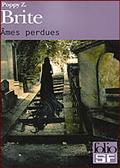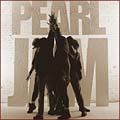#
# XML_node.objet
#
# This object is an XML node representation
#
# /- name (string)
# xml_node --- attributes (array)
# \- children (array) or value (string)
class xml_node {
var $name;
var $attributes = array();
var $children = array();
var $value = "";
function xml_node($name,$attributes,$children=array(),$value="") {
$this->name = $name;
if (is_array($attributes)) {
$this->attributes = $attributes;
}
$this->children = $children;
$this->value = $value;
}
}
#
# xml_tree class
#
# This object parses an XML stream and offers a tree composed by xml_nodes
#
class xml_tree {
var $xml_stream;
var $current_node;
var $root_node;
var $index;
var $value;
function xml_tree() {
$this->root_node = new xml_node("__ROOT_NODE",array());
$this->current_node = $this->root_node;
}
function add_tree($xml_stream) {
# Managing the parser
$this->xml_stream = $xml_stream;
$xml_parser = xml_parser_create();
xml_parser_set_option($xml_parser,XML_OPTION_CASE_FOLDING,0);
xml_parser_set_option($xml_parser,XML_OPTION_SKIP_WHITE,1);
if (!xml_parse_into_struct($xml_parser,$this->xml_stream,$this->value,$this->index)) {
xml_parser_free($xml_parser);
die("XML Parse error");
}
xml_parser_free($xml_parser);
# Now, $this->value and $this->index are informed, we can use the get_node methode.
$tab_result = $this->get_node(0,count($this->value) - 1);
$this->root_node->children[] = $tab_result[0];
$this->current_node = $this->root_node;
}
function get_node($index_start,$index_stop) {
#echo "
\n";
#echo "GET-NODE($index_start,$index_stop)
\n";
# What we are going to return is an array of xml_nodes
$return_tab = array();
# depth is only here to check if everything is all right
$tab_node = $this->value[$index_start];
$depth = $tab_node["level"]-1;
# Now we have to be sure we do not forget a single node
for ($index = $index_start;$index <= $index_stop;$index++) {
#echo "\$index = $index
";
# get the current node
$tab_node = $this->value[$index];
# what type of node is it ?
switch($tab_node["type"]) {
case "complete" :
# Depth integrity check
if ($tab_node["level"] != $depth+1) {
die("ERREUR # contrainte d'intégrité au noeud complet $index, niveau $depth + 1 au lieu de ".$tab_node["level"]);
}
#echo "Noeud complet trouvé position $index TAG ".$tab_node["tag"]."
\n";
# Easy one, no children to manage, only a value...
$return_tab[] = new xml_node($tab_node["tag"],$tab_node["attributes"],"",$tab_node["value"]);
break;
case "open" :
# Depth integrity check
if ($tab_node["level"] != $depth +1 ) {
die("ERREUR # contrainte d'intégrité au noeud ouvert $index, niveau $depth au lieu de ".$tab_node["level"]);
}
# Open tag, we re-use this methode to return its children
# Where is the correspondong close tag ?
$node_index = $this->index[$tab_node["tag"]];
$flipped_node_index = array_flip($node_index);
#echo "This ".$tab_node["tag"]." is at coords ".$flipped_node_index[$index]."
";
$i=1;
do {
$next_index = $node_index[$flipped_node_index[$index] + $i++];
$next_tag=$this->value[$next_index];
}
while ($next_tag["level"]!=$tab_node["level"]);
#echo "Ouverture de noeud détectée pos $index TAG ".$tab_node["tag"]."
\n Parcours jusqu au $next_index
\n";
# good, we can now instanciate our node
$return_tab[] = new xml_node($tab_node["tag"],$tab_node["attributes"],$this->get_node($index+1,$next_index),"");
# As we called the get_node methode, we are sure that nodes have been parsed to the corresponding close tag
$index = $next_index;
break;
case "close" :
# Depth integrity check
if ($tab_node["level"] != $depth ){
die("ERREUR # contrainte d'intégrité au noeud fermé $index, niveau $depth au lieu de ".$tab_node["level"]);
}
#echo "Fermeture de noeud detectée pos $index TAG ".$tab_node["tag"]."
\n";
# This ugly thing is useless because reaching a close tag means that $index==$index_stop but who knows ? =)
# it will be skipped soon
$index = $index_stop;
break;
default:
die("Erreur de type de TAG non déterminé :'".$tab_node["type"]."'");
}
}
# We are out ... returns the array with collected children...
return ($return_tab);
}
# this function browse the xml tree and set the current node to the selected node
function give_node($path) {
if ($path[0]=="/") {
$current_node=$this->root_node;
$path=substr($path,1);
#echo "ABSOLUTE PATH GIVEN=$path
";
}
else {
$current_node = $this->current_node;
}
#echo "PATH GIVEN=$path
";
$tab_path = split("/",$path);
foreach ($tab_path as $node_expr) {
#echo "STUDYING EXPR='$node_expr'
";
$node = $current_node;
$expr_tab = split("\?",$node_expr);
$node_name = $expr_tab[0];
$attr_tab = 0;
if (count($expr_tab)>1) {
##echo "TROUVE AU MOINS UNE CONDITION SUR LES ATTRIBUTS...
";
$attr_expr_tab=split(",",$expr_tab[1]);
$attr_tab=array();
foreach($attr_expr_tab as $attr_expr) {
$attr_split_expr=split("=",$attr_expr);
$attr_tab[$attr_split_expr[0]]=$attr_split_expr[1];
}
}
$last=0;
foreach ($node->children as $children) {
#echo "COMPARING WITH '$children->name'
";
if ($children->name == $node_name) {
##echo "TROUVE NOEUD CORRESPONDANT $node_name
";
if (is_array($attr_tab)) {
$node_attributes = $children->attributes;
foreach ($attr_tab as $key=>$value) {
if ($node_attributes[$key] == $value) {
#echo "ATTRIBUTE & CHANGE CURRENT NODE TO ".$children->name."
";
$current_node = $children;
$last = 1;
}
}
}
else {
##echo "CHILD=".$children->name."
";
#echo "CHANGE CURRENT NODE TO ".$children->name."
";
$current_node = $children;
$last=1;
}
}
if ($last) {
break;
}
}
if (!$last) {
#echo "PATH ERROR $node_name
";
#die("MMmmmh It seems that this file is not a DIA XML format...sorry...");
return 0;
}
}
return $current_node;
}
function browse_tree($path) {
$node = $this->give_node($path);
if (is_object($node)) {
$this->current_node = $node;
return 1;
}
return 0;
}
# this method dumps an html representation of the xml tree
function xml_show($node = "",$level=0,$last=0) {
if ($node=="") {
$node=$this->root_node;
}
if (!is_object($node)) {
die("ERROR : node is not an object");
}
$line="";
for($i=1;$i<=$level;$i++) {
if ((i==$level-1) and ($last)) {
$line.=" ";
}
else {
$line.=" |";
}
if ($i==$level) {
$line.="`-";
}
}
$line.=$node->name;
#echo $line;
$line.="".count($node->children)."";
if (count($node->children)==1) {
$line.=" (".$node->value.")
\n";
echo "$line";
}
else {
$line.="
\n";
echo "$line";
$i=1;
foreach($node->children as $children) {
if ($i==count($node->children)) {
$this->xml_show($children,$level+1,1);
}
else {
$this->xml_show($children,$level+1);
}
$i++;
}
}
}
#END_CLASS
}
16 (usa) - Bridges To Burn (2009)

Label : Relapse Records / Pias
Sortie du Scud : 20 janvier 2009
Pays : Etats-Unis
Genre : Sludge Metal
Type : Album
Playtime : 12 Titres - 46 Mins
Je concède que je n’ai jamais compris les groupes qui se nomment en fonction d’un chiffre ou d’un nombre surtout quand ils ne nous tiennent pas informés de sa réelle signification. Alors si je conçois encore 1349, 666 ou 3.14, comment expliquer 16 ? Aidons-nous avec le raisonnement Strauss-kahnien mis en scène dans les Guignols de l’Info : 2 fois 8 = 16 ? 20 moins 4 = 16 ? Racine carrée de 256 = 16 ? Non, vraiment, c’est dur à définir d’autant qu’en Amérique, ah que rares doivent-être les gens qui ont eu vent des Guignols français. Alors quoi d’autre ? Un hommage à la région Charente ou à l’âge du consentement sexuel ? Le nombre d’années de mariage avant de décrocher les noces de saphir ? Le numéro du soufre qui est considéré comme un non-métal ? Mais là encore, ça ne colle pas puisque 16 est tout ce qu’il y’a de plus Metal. Une bonne migraine plus tard, j’en suis arrivé à la conclusion qu’en fait, je m’en foutais pas mal…
Ce qui m’importe à moi, c’est ce son de dingue délivré par les quatre névrosés de 16. Et on peut affirmer avec certitude que ce Bridges To Burn est un retour sensationnel après six années d’absence pour les californiens. Dès « Throw In The Towel », on flaire la bonne affaire. Le Metal proposé est totalement bancal et friable. La formation l’a bien compris, c’est dans l’air du temps d’avoir une facette de musicien un peu m’enfoutiste sur les structures et qui favorise largement un côté quasiment improvisé. Ce n’est pas pour rien qu’on parle de Sludge Metal, un mouvement assez peu représenté et qui tire ses origines dans le Post-Hardcore, le Stoner Rock, le Punk, avec des assemblages de Doom, Jazz ou Progressif. Voilà donc le savoureux mélange concocté par 16 qui, semble t’il, a jugé bon de désosser toutes ses compositions pour ne laisser aucune trace de squelette et laisser chancir une viande gorgée de sang sur la table d’opération. C’est d’autant plus déstabilisant qu’on se noie sous les variations rythmiques. Les zicos ont cette faculté de passer d’une vitesse d’exécution folle à des downs-tempos lancinants et hypnotiques. Ceux qui aiment la propreté et la sérénité pourront faire vomir leur mange-disque. Tout ce que dégage Bridges To Burn c’est une odeur nauséabonde et des morceaux boueux. Entre « My & My Shadow », « Monday Bloody Monday » (qui n’est pas une reprise) et « Thorn In Your Side », on ne sait plus où donner de la tête pour apprécier cette aisance. C’est presque trop facile. Mais n’oublions pas que nos amis ont connus nombreux hauts (Drop Out – 1996) et bas (Blaze Of Incompetence – 1997) depuis 1991 avant d’en arriver là. En terme de qualité et de surprise, 16 m’évoque même HELLMOUTH de par son culot et sa verve toujours intacte. Le type de sortie que l’on n’attend pas forcément mais qui vous bluffe encore mieux que Patrick Bruel (peut-on faire pire ? Black day !).
Pas la peine d’avoir un bac littéraire pour comprendre la prose joué par 16. Elle n’a aucune logique, aucune cohésion et c’est son point fort. Les plages se construisent et se détruisent aussi facilement qu’un château de cartes. Vous en perdrez votre latin. Jouissif. Après tout, le mieux c’est de déguster 16 avec une bonne 1664. Il était peut-être là, l’hommage…
Ajouté : Mercredi 08 Avril 2009
Chroniqueur : Stef.
Score :    
Lien en relation: 16 Website
Hits: 13579
|














